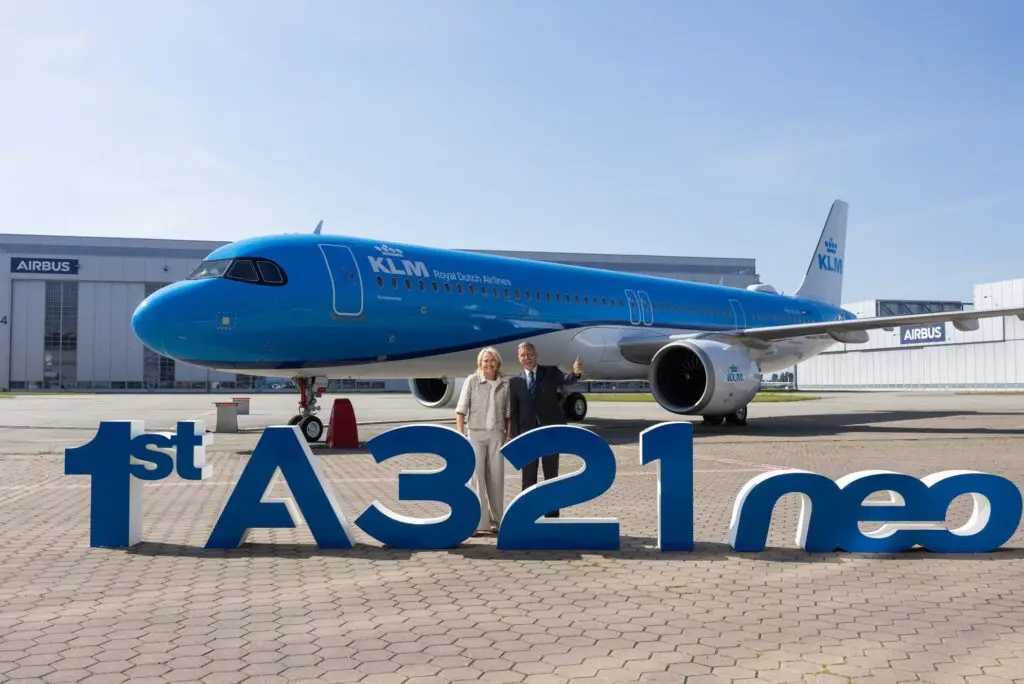KLM, a prominent member of the Air France-KLM Group, has officially accepted the delivery of its inaugural A321neo aircraft as part of a larger fleet modernisation effort.
By integrating the A321neo, KLM joins the ranks of successful operators of this advanced aircraft model, according to Airbus, which significantly contributes to the manufacturing sector with thousands of employees across its UK facilities in Broughton and Filton. The selection of the A321neo signifies a step forward in incorporating cutting-edge technology aimed at reducing noise pollution during take-off, approach, and landing phases.
The newly acquired A321neo boasts a seating capacity of 227 passengers arranged in a two-class configuration. The aircraft’s cabin is designed with the Airbus Airspace interior, which includes XL bins that offer 60% more luggage capacity, thus enhancing the boarding process for passengers and crew alike. Furthermore, each seat is equipped with USB-C ports, and the latest lighting system has been implemented to improve the overall in-flight experience.
Propelled by new generation CFM International LEAP-1A engines and fitted with sharklets, the A321neo model promises a 50% reduction in noise footprint and at least 20% savings in fuel and CO₂ emissions compared to the previous generation of single-aisle aircraft. This makes it the largest and most efficient member of the A320neo family, which is noted for its unparalleled range and performance. To date, over 6,400 A321neo aircraft have been ordered by more than 90 customers worldwide.
The A321neo is already capable of operating with up to 50% Sustainable Aviation Fuel (SAF), and Airbus aims to achieve 100% SAF capability by 2030. This aligns with KLM’s environmental objectives and commitment to sustainability.
The introduction of the A321neo marks a significant milestone for KLM, reinforcing its commitment to modernisation and environmental sustainability.

